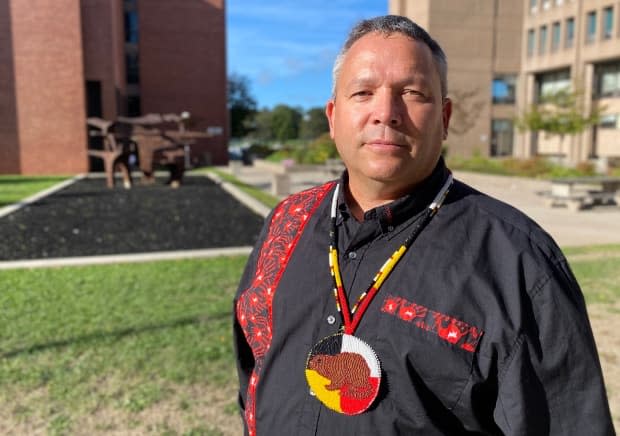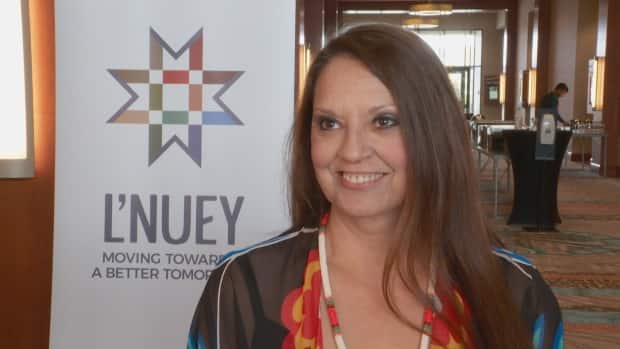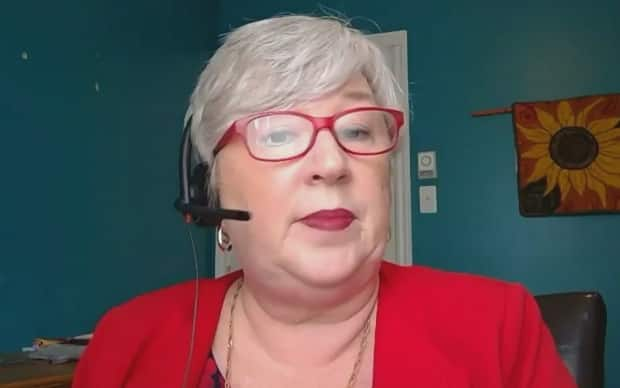P.E.I. Mi'kmaw chiefs denounce DFO's 'moderate livelihood' fishery plan

Prince Edward Island's two Mi'kmaw chiefs are denouncing a move by the federal Department of Fisheries and Oceans to regulate their "moderate livelihood" fishery, especially a provision that would allow fishing only during existing commercial seasons.
"We have waited long enough," said Lennox Island First Nation Chief Darlene Bernard. "We intend to implement our self-regulated fishery based on right."
P.E.I.'s spring commercial lobster fishing season usually lasts from the beginning of May to the end of June.
The right to a moderate livelihood fishery was affirmed by the Supreme Court of Canada in 1999, springing from the Donald Marshall case in Nova Scotia, but the precise details remain dependent upon ongoing negotiations between the federal government and Mi'kmaw bands.
On Wednesday, the federal government announced it will not license any Indigenous moderate livelihood fishery in Atlantic Canada unless it operates within the commercial season.
Ian MacPherson, executive director of the P.E.I. Fishermen's Association, told CBC News on Friday that the group supports Fisheries Minister Bernadette Jordan's "focus on conservation and sustainability" in the decision and "was glad that she erred on the side of conservation."
He added that the board has not had a chance to discuss the ruling and wouldn't be commenting further at the moment.
A news release from P.E.I.'s Mi'kmaw chiefs Thursday called the plan "both unlawful and disrespectful."
"DFO's continued paternalistic approach to our rights-based fishery goes against the very spirit of reconciliation," Abegweit First Nation Chief Junior Gould said in the release.

Bernard said she was "blindsided" by Jordan's announcement, especially since she had taken part in a roundtable discussion with Jordan Wednesday during which they talked about the moderate livelihood fishery.
P.E.I.'s Mi'kmaw people have not yet exercised their right to a moderate livelihood fishery, but Bernard has said they plan to this spring and "it may or may not be within commercial seasons.… We are currently engaging with our community members, analyzing the science and data and all other relevant information and developing our management plans."
Bernard said the community doesn't feel it has to wait any longer: "It has been over 20 years since the Marshall decision."
Jordan's statement said DFO will work with Mi'kmaw communities to develop moderate livelihood fishing plans that will be licensed by DFO.

She acknowledged the plans are a "fundamental shift" in the way DFO has approached this issue.
This is not what nation-to-nation decision-making and respect for self-governance looks like — Chief Darlene Bernard
In 1999, the Supreme Court's controversial ruling on R. v. Marshall affirmed a 240-year-old treaty right allowing Indigenous peoples to earn a "moderate livelihood" through commercial fishing in Atlantic Canada. After months of criticism from non-Indigenous fishermen, the court issued a clarification on Nov. 17, 1999, which reinforced the federal government's power to regulate the fishery.
That regulation is the source of this dispute.
Jordan said government is within its rights to regulate the valuable fishery, and the chiefs say it is not.
In her statement, Jordan said "seasons are part of the overall management structure that conserves the resource, ensures there isn't overfishing, and distributes economic benefits across Atlantic Canada."
Gould disputes this. "To imply that this approach is based on conservation purposes is false ... We haven't seen any data or evidence to support this," he said.
Feds taking 'colonial approach,' says Mi'kmaw chief
"This is not what nation-to-nation decision-making and respect for self-governance looks like," Bernard said.
"It is not just a colonial approach to First Nations relations, it does not respect the rule of law."
P.E.I. Senator Brian Francis — the former chief of Abegweit First Nation — issued his own statement late Thursday evening echoing the chiefs's statement.

"[Jordan's] 'new path' is paternalistic and perpetuates the old divide-and-conquer strategy used by predecessors, offering to sign only conditional commercial agreements with individual bands," he said.
Francis said it also ignores traditional Mi'kmaw law under which harvests are only done sustainably.
He said the department's own evidence shows the scale of this fishery would not have a negative impact on lobster stocks.
"Even if conservation was a real issue, it is the privilege-based commercial fishery that should be regulated first," he said.
Francis said he worries the government's approach will lead to more for hostility or even violence against Mi'kmaw fishermen.
"I am left deeply troubled and concerned that the Mi'kmaq and/or other First Nations will be forced to once again resort to the courts to ensure our rights are honoured. That, to me, is not how we achieve real reconciliation."
There were sometimes-violent confrontations on and off the water with local fishermen last fall in Nova Scotia's St. Marys Bay when the Sipekne'katik band launched its own moderate livelihood lobster fishery.

Sipekne'katik Chief Mike Sack is urging Mi'kmaw bands in Atlantic Canada to reject the federal government's position and said his First Nation will continue to operate its fishery outside DFO seasons in 2021.
P.E.I. MLAs unanimously passed a motion last November supporting the Mi'kmaw treaty right to a moderate livelihood fishery.
Next month, P.E.I. Mi'kmaw rights group L'nuey will launch an education campaign about the treaty-protected fishery, the release said.
More from CBC P.E.I.

